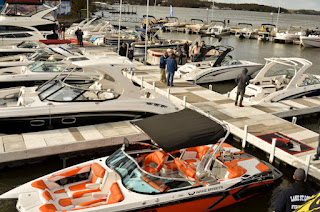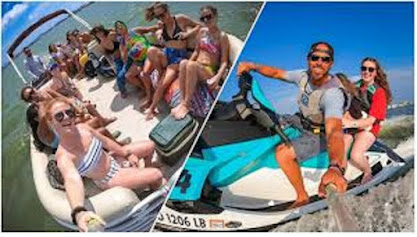Distraction Equals Disaster
With increased traffic on the waterways, those at the helm need to maintain a proper lookout. Leave smartphones alone, and know when to tune out conversations on board. As captain you are responsible for the safety and well fare of not only all on board, but other boaters as well.
2020 Lake of the Ozarks had 97 incidences 84 of these were boating accidents where drinking, inattention, no lookout contributed to accidents.
The Coast Guard describes operator inattention as “failure on the part of the operator to pay attention to the vessel, its occupants or the environment in which the vessel is operating.” Although it’s difficult to determine how many boating accidents actually happen as a result of boat operators or lookouts texting or otherwise using electronic devices such as cellphones, laptops and tablets, there’s little doubt that such activities are a big part of the problem. Rapid growth in the use of wireless devices wreaks havoc for operators of all types of vehicles, including boats.
“Cellphones are the primary communication device for many boaters,” said Ted Sensenbrenner, assistant director of boating safety for the BoatUS Foundation, a nonprofit group that represents recreational boaters. “So while [electronic devices are] important to all of us, we have to know how to use them wisely. If you’re texting from the helm, you’re likely not helming the boat.”
Unlike cars on highways, boats can approach from all directions, come in vastly different sizes and may move at very different rates of speed. If you use your smartphone or other electronic devices while onboard your craft, it’s extremely important that you be aware of the risks of distracted boating.
Sensenbrenner said boating’s unique stressors of sun, glare, wind, waves and vibration could increase the likelihood of problems. Research shows that hours of exposure to these things produce a kind of a fatigue, or “boater’s hypnosis,” which slows reaction time almost as much as if you were legally drunk. Adding alcohol multiplies the accident risk.
Additional Risk Factors
Texting while boating is only part of the problem. Reports indicate that many other activities can contribute to distracted boating accidents as well. These include eating/drinking, talking to passengers, reading (including maps) and adjusting the stereo or electronics.
Just a few moments of inattention caused by actions such as these can lead to injuries or even deaths when boats collide with other boats or unnoticed obstructions, or when a craft swamps or capsizes because the driver didn’t see big waves or wakes. You cannot operate a boat safely unless the task of operating the craft has your full attention. Any nondriving activity you engage in is a potential distraction and increases your risk of crashing.
The National Association of State Boating Law Administrators, a national nonprofit organization that works to develop public policy for recreational boating safety, recently released its 2018 10 Most Wanted List of Recreational Boating Safety Improvements. The list is designed to increase awareness of, and support for, the most critical changes needed to reduce recreational boating accidents and save lives. Included are important mandates to increase life-jacket wear, reduce boating under the influence of alcohol and other drugs, and more.
Safety Tips
With distractions more prevalent than ever — more than 150 billion text messages are sent in the U.S. every month, for example — how can you, and those you love, be safer? Here are a few tips from Safeco Insurance that apply to boat drivers, as well as drivers on the road.
Don’t use the phone. This includes texting, as well as talking, unless it’s an emergency. Even hands-free conversations can take your attention off the water or road.
Eat before you leave or after you get there. Scarfing down that burger with one hand on the wheel means your focus is divided, and you probably don’t have as much control over your boat or car as you should.
Know where you’re going. Nobody likes to be lost. But messing around with your boat or car’s GPS (or the maps app on your smartphone) while you’re moving can lead to something you’ll hate even more — an accident.
Talk to your family about safe boating and driving. Having a conversation with your spouse as he or she is driving a boat or car provides the perfect opportunity to say, “I’ll let you focus on what’s ahead; we can talk when we arrive at our destination.” And if you have young boaters or drivers in the household, be sure to have a conversation about their phones and other potential issues, such as their passengers — a key distraction for teens.
Watch for other distracted boaters and drivers. Just because you aren’t distracted doesn’t mean that others are focused on safely operating their boats or cars. Stay in control, and be vigilant. You’ll be ready to react when someone else makes the wrong move.
Distracted boating isn’t just “one of those things” that happens, like a mechanical failure that isn’t anyone’s fault. Distractions are 100-percent preventable, and by committing to avoiding distractions while you’re operating a boat, you’ll help make the water safer for everyone.




Comments
Post a Comment